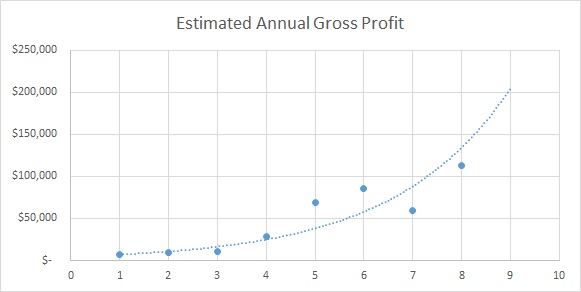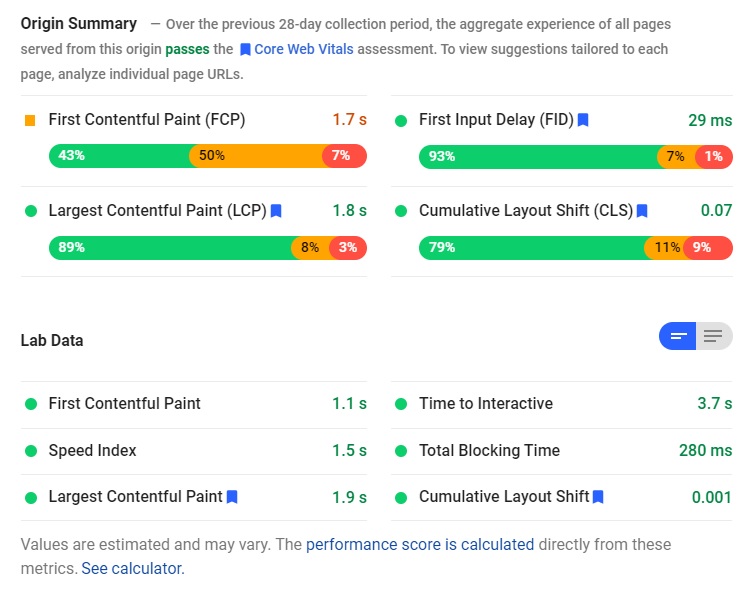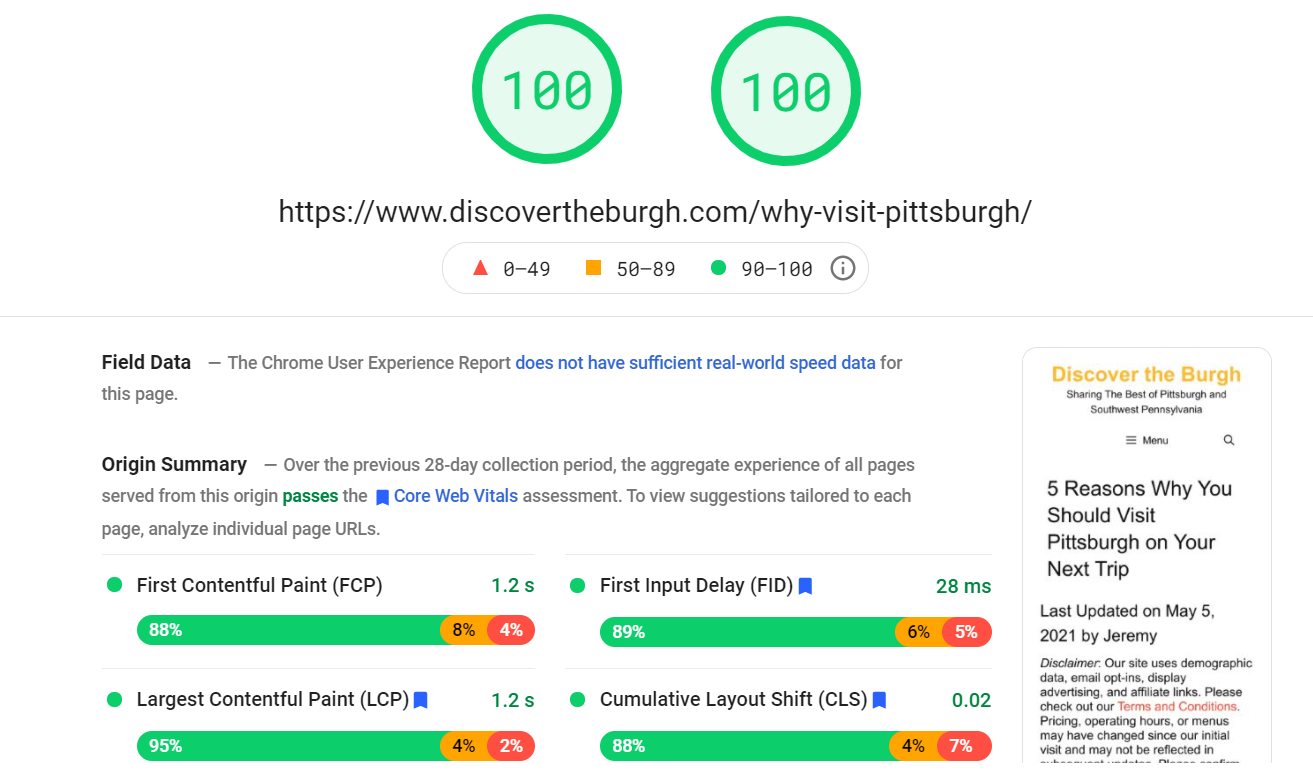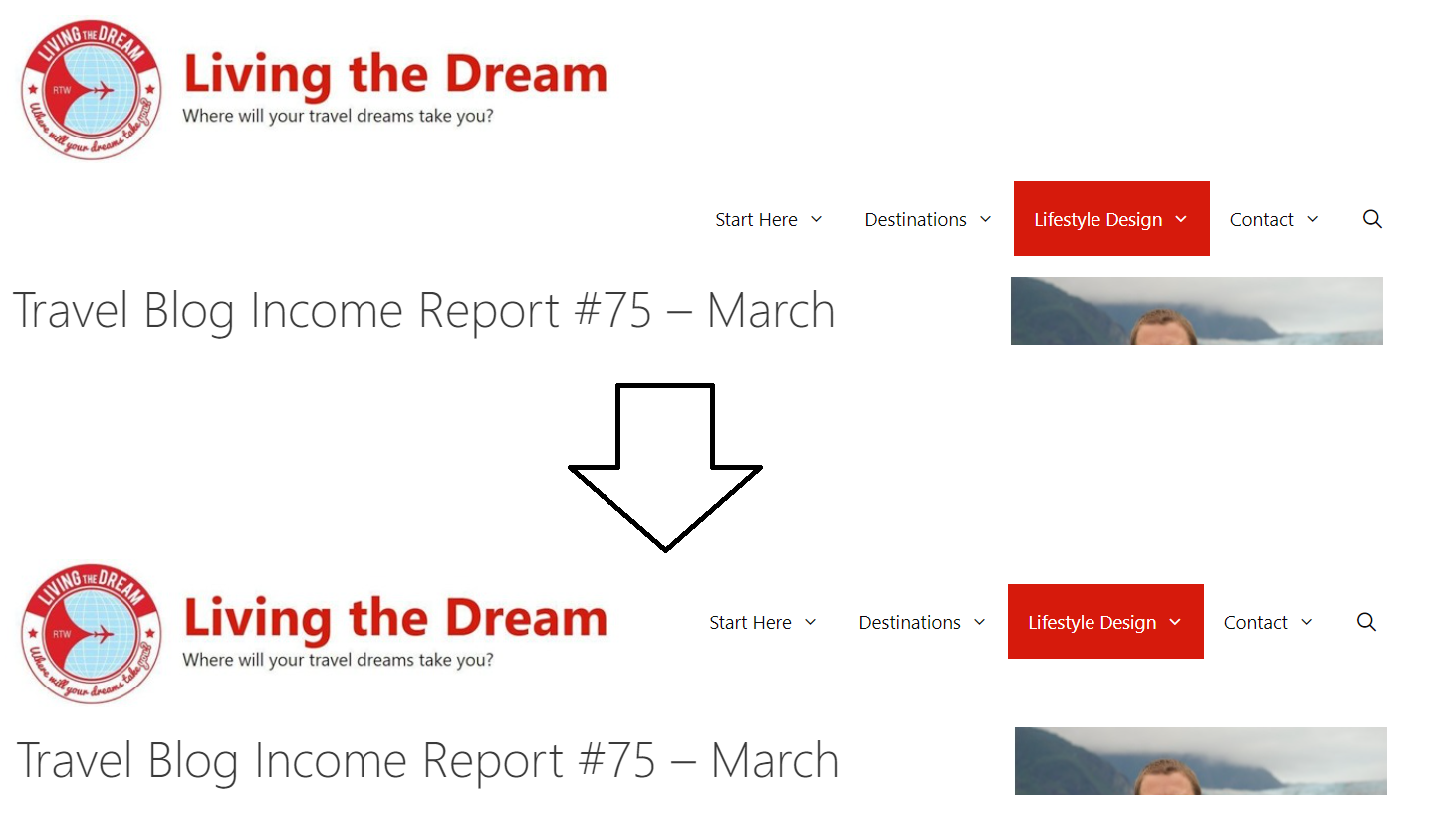Published by Jeremy. Last Updated on July 21, 2022.
Disclaimer: This Week in Blogging uses demographic data, email opt-ins, and affiliate links to operate this site. Please review our Terms and Conditions and Privacy Policy.
If you ever have the misfortune luck to ever meet me at a conference, you will quickly find out that I am a data nerd. I love analytics, the technical side of blogging is my favorite part, and yes, I even enjoy SEO (something virtually no one anywhere ever says).
So it should be no surprise that when it comes to tracking blogging income, I have a spreadsheet for that and I update it every single week.
As it turns out, I recently passed my 400th week of tracking my blogging income (which for those who don't want to do the math is nearly eight years), and I thought it was time to share some insights I've learned along the way.
Some of these insights are helpful to bloggers outright, and others are reasons why you, too, should track your income at a set interval (if not weekly, at least monthly). So let's dive into them now!
In 400 Weeks, I've Made Over $400,000
We're going to start this one out with a pretty big bombshell- in about 7.5 years of tracking my blogging income, I've made $400,000*. This equates to about $1,000/week on average and $52,000/year.
But simply throwing this number out into the ether is somewhat meaningless. Yes, this average is fantastic. Yes, I feel like I'm slightly bragging right now (I don't intend to). But I am also throwing this out there with a bit of a warning- most of that came in the most recent years after a long, grueling slog to turn a passion project into a business. Over 25% of that $400,000 figure was in 2021 alone, and I also quit my job 10-years to the day of starting my first travel blog.
When I say it was a slog, I mean it.
So, you may be asking yourself “that's cool and all, but how does this help me?” It is true that my exact income doesn't matter to you in the slightest, but what I found in tracking my weekly earnings is that I have been forced into a money mindset for my business.
When I started blogging, I treated it like a hobby. I didn't know what I was doing, and any extra cash that came in was beer and/or travel money. I wanted to make it a business, but I didn't prioritize making it a business (at the time I felt like I was doing it right, but oh was I wrong). By starting to log my income, I made sure I looked at how my sites were performing every single week, how that data was tied to projected incomes, and that was the first step I needed to transform my business from only receiving unsustainable one-off income sources to dedicated (and primarily passive) income streams.

Not only that, but tracking this data long-term helped me get a feel for my growth trajectory. I plot every year's total income on a curve, adjust for a curve fit, and then predict what next year's income could be if I kept pace with my historic growth. We all know that COVID wrecked that, but I was surprised to find that my 2021 income bounced back to where I was predicting 2020 to be all the same (see Years 7 and 8 above).
This also gave me extra motivation in more desperate times (read: early 2020) as when I saw my income potential was dropping fast, I knew I had to pivot quickly. Had I not been paying attention? Well, things may be looking a lot different right now.
*Note: The listed $400,000 is what I call “projected income” and is not necessarily income I received in-house over that time (my accounting software does that). As we all know, campaigns get canceled, affiliate sales are returned, earnings may take months or years to be paid out, and so on. This is much more like what is used in sales to forecast earnings and simply helps me do some data analysis of “income” vs site performance.
Breaking Out Income Streams is Incredibly Important
While having a blogging income tracker is important to simply get you in the business mindset outright, it also lets you approach things far more analytically.
I broke out income columns in my spreadsheet to track things like sponsored content sales, book sales, Amazon affiliates, non-Amazon affiliates, CPM ads, and more. This, coupled with traffic data and RPM calculations, really let me have my thumb on the pulse of any income trends for my site.
This works for a macro level overall (seeing “affiliates” at large go up and down) but also on the micro-level because tracking income made me log into every account I belong to weekly to see how much money I made. Over 400 weeks, I would always have a feel about what my rough average should be income-wise for many of these passive streams, but whenever there was a big spike or drop it would make me take a step back and ask why that was?
Increases are a bit easier to follow- a big-ticket item likely was sold resulting in a solid commission. Here I feel the need to look into more to figure out where, why, and how I can repeat that again. Decreases often require more digging. If I knew, say, I would expect $20/week from train ticket sales, and suddenly it dropped to zero for a few weeks in a row, I would get a cue to go look at the traffic for those converting articles. Or if my ad rates dropped on the CPM side of things, I could go into my Mediavine dashboard and take a look there as well.
These changes inspired me to conduct many tests to try and improve my income streams. If I knew a tour converted at X, I would work to try extra placements at Y and Z. If a certain blog post went viral with A, B, or C number of ads, I could see how the resulting ad rates impacted my income and tailor new articles to that format. Or when my income tanks completely in January, I just remind myself that Q1 is awful for ad rates and I can't do much about that, either.
So not only does tracking income simply put you in a business mindset, depending on what data you track you really can start to turn on some data analysis to find what works and repeat it again, and again, and again.
It Helps Me Plan the Future of My Blogs
In the first bullet point above, I mentioned how projecting my income lets me get an idea of where the next year may go if past growth repeats itself. But tangentially this one also lets me make a business plan for the upcoming years, too.
This one really only comes after you have several years of data logged and growing, passive income streams.
At a certain point over the last 400 weeks, I always seem to get to the point where I trust in my work in any given income category. I rarely A/B test affiliate programs anymore because I've done that in the past. It is well enough, and I move on. I rarely test ad placements or ad networks, because I'm happy where I am there, too. Insofar as my traffic is growing and no major changes happen to an individual article or the ecosystem at large, which I addressed in the previous section, I expect these to rise with my traffic over time.
I'm a big proponent of the 80/20 rule, and when I get to a level where I'm satisfied that things run themselves, I shift to thinking about what I can do in the future outright.
Is the answer simply to write more to increase traffic? Create new solutions to sell sponsored content? Try and get a new revenue stream like a product or selling photography? (All things I want to get into with my sites.) There isn't a one-size-fits-all answer here. During COVID I created new blogs. Now I'm thinking products and sponsored content. But looking at my data in the past has helped me get a greater appreciation for what I want to do new in the future to continue to build new revenue streams on my sites and address any weak areas I may still have.
Then I do what I do every week- check the performance, log the results, and optimize until I am at a point where I'm satisfied to move on to the next thing.
It is a slog to be sure, but these points are some of the biggest reasons why I went from making $10,000/year to over $100,000/year on my blogs today. I'm just not sure I ever would've got there if I didn't start tracking my income over 400 weeks ago and taking my sites seriously as a business, and that is the honest truth.
Must-Have Items When Tracking Blogging Income
When it comes to tracking your blogging income, more data is always going to be better than less. So if you are looking to build a spreadsheet, you may want to have the following columns for your weekly or monthly tracking:
- Sponsored Content
- Product Sales (Total Column or Individually by Item)
- Amazon Affiliates
- Other Affiliates (Total Column or Individually by Program)
- Media Sales
- Consulting (Paid Travel, Other Work, etc.)
- Freelance Writing
- CPM Ads
- …or whatever else you find to be important to your business!
From there, it is good to have a column that summarizes the total of all of these income streams, a column for tracking your weekly page views or sessions, and a calculation to determine your blog's overall RPM as well (total $ / traffic). I also plot these on graphs for a faster visual representation both weekly and annually as well.
I even go as far as setting a “goal” income for the week and have a column that calculates how much I beat the goal (or was under if I was not as good). This was designed simply as a means to give me a heads up that something wasn't quite going to plan and I need to investigate further.
Overall, the sky is really the limit on the data you can collect when tracking your blogging income. But the first step is simply tracking anything to begin with. Once you get in the habit, add more data streams, track regularly, and really dig down into making your blog a business!
Do you track your blogging income either weekly or monthly? What kind of data do you track and analyze? Comment below to share!
Join This Week in Blogging Today
Join This Week in Blogging to receive our newsletter with blogging news, expert tips and advice, product reviews, giveaways, and more. New editions each Tuesday!
Can't wait til Tuesday? Check out our Latest Edition here!
Upgrade Your Blog to Improve Performance
Check out more of our favorite blogging products and services we use to run our sites at the previous link!
How to Build a Better Blog
Looking for advice on how to improve your blog? We've got a number of articles around site optimization, SEO, and more that you may find valuable. Check out some of the following!











